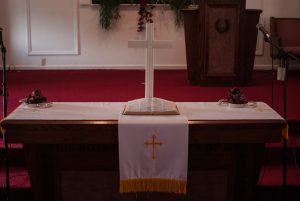Vietnam’s government has listed two overseas-based political groups as “terrorist organizations,” accusing them of fomenting violence and encouraging secession in the country’s Central Highlands.
According to Vietnamese state media reports, which cited a statement from the Ministry of Public Security, the groups are the Montagnard Support Group Inc (MSGI), which is based in the United States, and the Montagnard Stand for Justice (MSFJ), which operates in both the U.S. and Thailand.
It claimed that both groups engaged in propaganda, recruitment, training, and financing of “terrorist activities,” with the aim of establishing “a ‘separate state’ in the Central Highlands.” Anyone who joins, finances, or attains training courses offered by the MSGI or MSFJ, or acts under their direction, will be liable for the crime of “terrorism” or “financing terrorism,” which carry hefty prison terms, the Ministry stated.
The Public Security Ministry accused the MSGI and MSFJ of involvement in the deadly attacks in the Central Highlands last June, which killed nine people, including four policemen. The leaders of both groups strongly deny these allegations, claiming that they simply work to defend the cultural and political rights of the Montagnards, or Degar, people. These umbrella terms include a number of different upland minority groups living in the Central Highlands, many of them Protestant Christians who fought alongside U.S. forces during the Vietnam War, and have forged a common identity in years of tensions with the central state.
The MSGI was established in 2011 by former members of the United Front for the Liberation of Oppressed Races, or FULRO, which led a low-level Montagnard insurgency against the Vietnamese state until the early 1990s. It is registered in North Carolina, where large numbers of Montagnard refugees settled after the end of the Vietnam War.
The MSFJ was founded in Thailand in 2019 and works “to address the issues of discrimination, suppression of religious freedom, land seizure, and cultural erosion faced by the Montagnards,” according to its website. The group claims to have members in Thailand, the U.S., and Vietnam.
The June 2023 attack reflected the tense political conditions in the Central Highlands, and the history of mistrust that colors the relations between the Montagnards and the central state.
In the Vietnamese government’s version of events, the attack saw around 40 people launch a pre-dawn attack on People’s Committee buildings and police offices in Ea Tieu and Ea Ktur communes, which are located south of Buon Ma Thuot, the capital of Dak Lak province. It said that petrol bombs and grenades were used in the assault, with Public Security Ministry spokesperson To An Xo claiming that the attackers were “organized, violent, bold, barbaric, and inhumane.”
There is obviously a lot more to the story. While the motivation and goal of the attackers are unclear, the Dak Lak incident is probably inseparable from years of land-related tensions and crackdowns on unregistered evangelical churches. This in turn is set against a backdrop of mistrust dating back to the Vietnam War years.
As a result of this legacy, the Communist Party of Vietnam has viewed the indigenous inhabitants of the Central Highlands with suspicion, and has evinced a tendency to view any expression of ethnic and political grievance as evidence of separatist intent. It is thus no surprise that two organizations advocating for the cultural and political rights of Montagnards would be viewed in the same light.

































